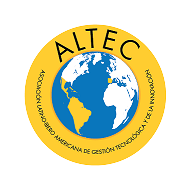Research infrastructures in developing countries: The Brazilian case

View/
Date
2019Author
Caliari, Thiago
Siqueira, Marcia
Chiarini, Tulio
Metadata
Show full item recordAbstract
High quality research infrastructure is required to conduct S&T activities which may help to address national challenges and contribute to innovation processes. Given this, an exhaustive survey conducted by the Brazilian Institute of Applied Economic Research (Instituto de Pesquisa Econômica Aplicada – IPEA) was undertaken to diagnose the current research infrastructure situation in Brazil. Using this data, the present paper provides information that allows us to yield new insights based on the peculiarities of the research infrastructure in Brazil, complementing the studies already present in the literature. We propose, therefore, econometric models – Logit and Probit – to “measure” the relative modernity of the research infrastructure in the country. We test the impact of variables frequently present in innovation studies – lab size, S&T production scale and scope, longevity and interactions with other labs and firms. We found that scaling up, modernizing and interacting with other agents of the Innovation System increase the chances of a research infrastructure to be considered “advanced”.

